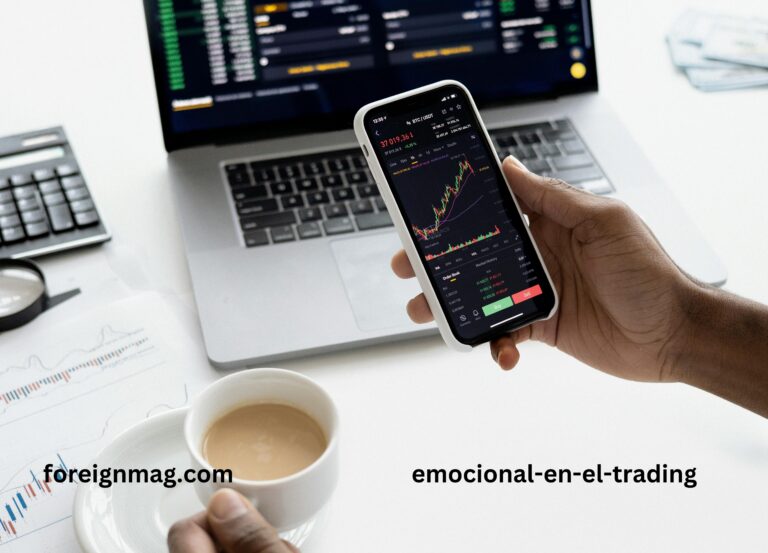Trading can be as much about Emotional Management as it is about analyzing charts and strategies. The financial markets often evoke strong feelings, from the thrill of winning trades to the stress of significant losses. Learning to handle these emotions is crucial for long-term success and maintaining mental well-being. This article delves into the importance of emotional management control in trading, strategies for managing feelings effectively, and how to cultivate a disciplined mindset.
The Emotional Rollercoaster of Trading
Trading is inherently emotional. The financial stakes, unpredictability, and rapid market movements can trigger a spectrum of feelings, including excitement, anxiety, and frustration. Without proper management, these emotions can cloud judgment and lead to impulsive decisions.
Common Emotions in Trading
Traders often experience:
- Fear: The fear of losing money can paralyze decision-making, causing traders to hesitate or avoid potential opportunities.
- Greed: The desire for bigger profits can push traders to hold positions longer than they should, leading to unnecessary risks.
- Frustration: Repeated losses or missed opportunities can lead to frustration, which may result in revenge trading—a dangerous attempt to recover losses quickly.
- Overconfidence: After a series of successful trades, overconfidence can emerge, leading to excessive risk-taking or neglecting established strategies.
Recognizing these emotions is the first step toward managing them effectively.
Why Emotional Control is Essential
Successful trading requires a clear and rational mindset. Emotional decisions often lead to poor outcomes, including significant financial losses. Traders who manage their emotions can better adhere to their strategies, avoid impulsive actions, and maintain consistency.
The Impact on Performance
Uncontrolled emotions can disrupt even the most well-thought-out trading plans. For instance, fear might prevent you from entering a trade that aligns with your strategy, while greed could push you to chase unsustainable profits. Emotional stability allows traders to focus on logic and analysis rather than reacting to market fluctuations.
Strategies for Managing Emotions in Trading
Managing emotions is a skill that can be developed with practice and self-awareness. Implementing the following strategies can help traders maintain emotional control.
Develop a Trading Plan
A well-structured trading plan acts as a guide, outlining entry and exit points, risk tolerance, and strategies. Sticking to this plan helps reduce the influence of emotions by providing a clear framework for decision-making.
Use Risk Management Techniques
Risk management is crucial in minimizing emotional responses. By setting stop-loss orders, traders can limit potential losses and reduce anxiety. Additionally, only risking a small percentage of your capital per trade can prevent significant financial and emotional impacts.
Practice Mindfulness
Mindfulness techniques, such as meditation and deep breathing, can help traders remain calm under pressure. Taking a few moments to focus on the present can reduce stress and improve decision-making.
Take Breaks
Stepping away from the screens during stressful moments can prevent impulsive decisions. Regular breaks help clear the mind and provide a fresh perspective on the market.
Building Emotional Resilience
Emotional resilience is the ability to recover quickly from setbacks and maintain a positive outlook. For traders, this skill is invaluable in navigating the highs and lows of the market.
Learn from Mistakes
Every trader experiences losses. Instead of dwelling on them, view them as opportunities to learn and improve. Reflecting on what went wrong and adjusting your strategy can lead to better outcomes in the future.
Celebrate Small Wins
Acknowledging your achievements, no matter how small, can boost confidence and motivation. Celebrating progress helps maintain a positive mindset and reinforces good habits.
Focus on the Process
Rather than fixating on profits, concentrate on following your strategy and improving your skills. A process-oriented approach reduces emotional attachment to individual trades and fosters long-term success.
The Role of Discipline in Trading
Discipline is the backbone of successful trading. It ensures that emotions do not override logic and helps traders stay consistent.
Stick to Your Strategy
Even during market turbulence, adhering to your strategy is essential. Deviating from it based on emotions can lead to unpredictable results.
Avoid Overtrading
Overtrading, often driven by impatience or a desire to recover losses, can quickly deplete your capital. Setting a limit on the number of trades per day or week can prevent this behavior.
The Long-Term Benefits of Emotional Management
Traders who prioritize emotional management often experience better performance, reduced stress, and greater satisfaction. Emotional stability allows for more consistent decision-making, which is critical in achieving financial goals.
Building Confidence
Managing emotions fosters confidence, as traders feel more in control of their actions and decisions. This confidence translates into improved performance and a more enjoyable trading experience.
Sustaining Mental Health
The emotional demands of trading can take a toll on mental health. By developing effective coping mechanisms, traders can reduce stress and maintain a healthy balance between their trading activities and personal lives.
Conclusion
Mastering emotional management is a fundamental aspect of successful trading. By recognizing and addressing emotions, implementing practical strategies, and building resilience, traders can navigate the challenges of the market with greater confidence and control. Over time, these efforts contribute to improved performance, a more disciplined mindset, and a rewarding trading journey.
By prioritizing emotional stability, you set yourself up for long-term success in the dynamic world of trading.
